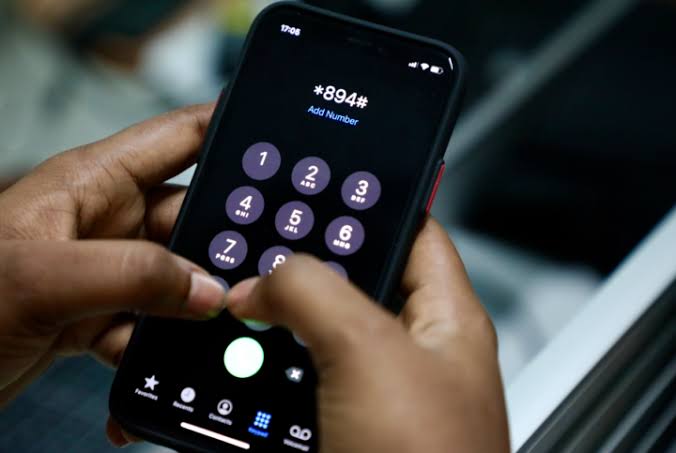The Nigerian Communications Commission (NCC) has issued a directive requiring banks to deduct Unstructured Supplementary Service Data (USSD) transaction fees directly from users’ mobile airtime, effective today, June 3, 2025.
This policy shift, which marks a significant departure from the previous practice of debiting bank accounts, is poised to enhance transparency, resolve longstanding disputes between banks and mobile network operators (MNOs), and streamline the user experience for millions of Nigerians relying on USSD for banking transactions.
The New USSD Billing Model
Under the NCC’s End-User Billing (EUB) model, the responsibility for collecting USSD transaction fees has been transferred from banks to MNOs, such as MTN, Airtel, Glo, and 9mobile.
Starting today, Nigerians using USSD codes (e.g., *737# for GTBank or *894# for FirstBank) to perform banking transactions like fund transfers, bill payments, or balance inquiries will see a flat fee of ₦6.98 per 120-second session deducted directly from their mobile airtime.
To ensure transparency and user control, a mandatory consent prompt will appear before each session, allowing users to approve or decline the deduction. This feature empowers consumers to make informed decisions about their USSD usage.
For those who prefer to avoid these charges, the NCC has encouraged the use of alternative banking platforms, such as mobile apps, internet banking, or physical bank branches. However, for many Nigerians, particularly those in rural areas with limited internet access or smartphone ownership, USSD remains a vital lifeline for accessing financial services.
Why the Change?
The NCC’s directive is a strategic response to a long-running dispute between banks and telecom operators over unpaid USSD service fees, which had escalated to a staggering ₦250 billion by December 2024.
USSD, a protocol that allows mobile users to interact with banking services via short codes, relies heavily on telecom infrastructure. Banks have historically charged customers for these transactions, but disagreements over revenue-sharing models led to significant debts owed to MNOs.
For instance, MTN Nigeria, one of the country’s largest telecom operators, reported that banks owed it ₦72 billion, of which only ₦32 billion had been recovered by late 2024. The NCC, in collaboration with the Central Bank of Nigeria (CBN), has been working to resolve this impasse.
The shift to airtime deductions eliminates the need for banks to act as intermediaries in collecting and remitting USSD fees to telcos, simplifying the process and reducing friction. By placing the billing responsibility on MNOs, the NCC aims to ensure fair compensation for telecom providers while maintaining affordability for end users.
Impact on Consumers
For the average Nigerian, this change introduces both opportunities and considerations. USSD banking has been a game-changer in Nigeria, where financial inclusion remains a priority.
According to the CBN, over 60% of Nigerians use USSD for banking, particularly in underserved regions where digital infrastructure is limited. The simplicity of dialing a short code to transfer money or pay bills has democratized access to financial services, especially for feature phone users.
However, the ₦6.98 per session fee could add up for frequent users, particularly low-income individuals who rely on USSD for daily transactions. For example, a user performing five transactions weekly could spend approximately ₦35 weekly, or ₦140 monthly, on USSD fees alone.
While this may seem modest, it could impact those with limited airtime budgets. The NCC’s emphasis on user consent aims to mitigate concerns, ensuring that customers are not charged unexpectedly.
On the flip side, the shift to airtime deductions could encourage more Nigerians to explore alternative banking channels. Mobile apps and internet banking, which are often free or incur lower fees, offer robust features and greater convenience for smartphone users.
However, the digital divide in Nigeria—where only 55% of the population has internet access, according to 2024 World Bank data—means that USSD will remain a critical tool for financial inclusion in the foreseeable future.
What’s Next?
As the new billing model takes effect, stakeholders are watching closely. Banks will need to update their systems to comply with the NCC’s directive, while MNOs will take on the responsibility of collecting and managing USSD fees.
The CBN and NCC will likely monitor the rollout to ensure compliance and address any consumer complaints. For users, the transition may require some adjustment. Those accustomed to seeing USSD fees debited from their bank accounts will need to ensure their airtime balances are sufficient for transactions.
The NCC has urged consumers to report any unauthorized deductions or technical issues to their mobile operators or banks.
Join our Whatsapp channel to stay updated always!




